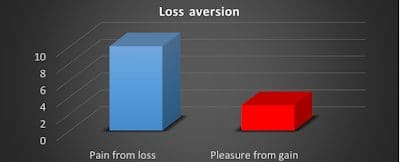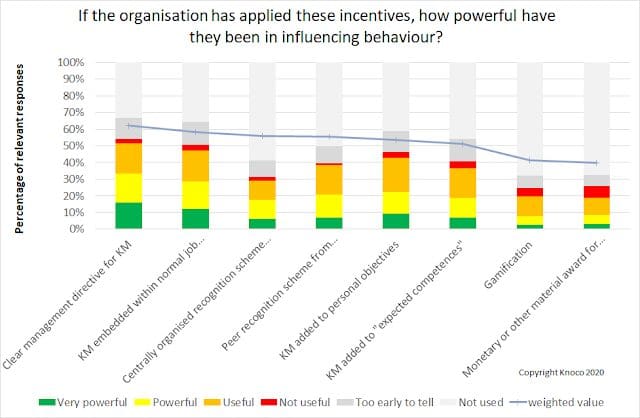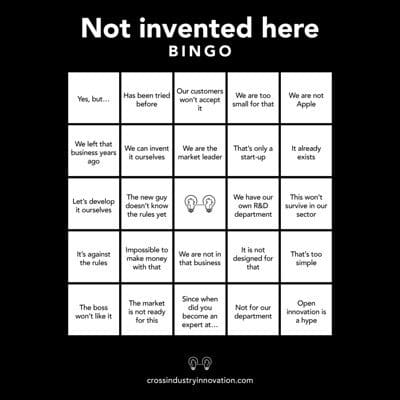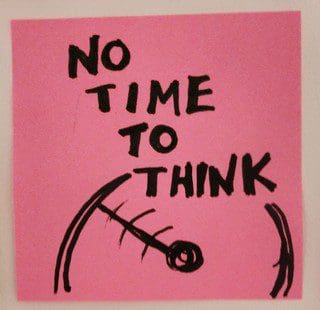
Favorite Here is insight into how NASA tackles the issue of incentives and motivation for KM behaviours. Image from wikimedia commons Incentives and motivation has long been a topic on this blog. Here in Knoco we believe in intrinsic motivation rather than motivation through rewards or prizes, preferring to
Read More
 Shared by Nick Milton December 14, 2021
Shared by Nick Milton December 14, 2021

Favorite The risk of loss of the status quo can be a powerful disincentive for change, and can be a powerful factor working against knowledge management implementation. There is a very apt quote from Machiavelli (The Prince, 1532), which applies to Knowledge Management as it does to any change initiative:
Read More
 Shared by Nick Milton December 14, 2020
Shared by Nick Milton December 14, 2020

Favorite Just incentivising knowledge publishing risks drowning the organisation in trivia. Social media overloadby Mark Smiciklas on Flickr I once had a conversation with a knowledge manager, who explained to me the incentive system they used for KM. My heart sank. In this particular organisation, people were incentivised to publish
Read More
 Shared by Nick Milton September 18, 2020
Shared by Nick Milton September 18, 2020
Favorite If Knowledge Management is like gardening and the knowledge manager is like a gardener (see here to understand the metaphor), then Internal competition is like a late frost that kills all your green shoots. Frosted by Lauryn on Flickr There is no point in planting the seeds of Knowledge
Read More
 Shared by Nick Milton July 28, 2020
Shared by Nick Milton July 28, 2020

Favorite There are a number of ways to incentivise KM, but which ones work? I blogged yesterday about an article which confirms that financial incentives for sharing knowledge can easily backfire, but which incentives actually work? We can answer this question with data from the Knoco KM surveys in 2014,
Read More
 Shared by Nick Milton July 3, 2020
Shared by Nick Milton July 3, 2020

Favorite On the topic of incentives for Knowledge Management, there are some interesting observations in this article from HR magazine in 2004 The article is a high level overview of KM, which although warning that KM is not about technology, still talks mostly about technology solutions (and which immediately equates knowledge
Read More
 Shared by Nick Milton July 2, 2020
Shared by Nick Milton July 2, 2020

Favorite People will engage with KM if the benefit to them outweighs the cost. Here are 20 ways to tip the scales in favour of Benefit. Balance scale, by winnifredxoxo on Flickr At a purely individual level, people will decide how to spend their time and energy based on an
Read More
 Shared by Nick Milton March 27, 2020
Shared by Nick Milton March 27, 2020

Favorite One of the main barriers to knowledge transfer and re-use is complacency. Benchmarking (internal and external) can help remove this complacency. Not invented here Bingo, by Ramon Vullings on Flickr One of the biggest barriers to overcome in Knowledge Management is a lack of desire to learn from others,
Read More
 Shared by Nick Milton March 17, 2020
Shared by Nick Milton March 17, 2020

Favorite People often ask us “how do we incentivise knowledge sharing?” I often answer “don’t bother. Incentivise knowledge seeking and re-use instead”. I give this answer, because knowledge sharing in itself achieves nothing. Knowledge needs to be sought and re-used before any value has been added, and re-use is often
Read More
 Shared by Nick Milton January 17, 2020
Shared by Nick Milton January 17, 2020

Favorite Very often people will say to you “we don’t have the time for Knowledge Management”. But what does this really signify? Image by on Paul Downey on Flickr “We are busy” they might say; “We have lots of real project tasks to do – we can’t take time off
Read More
 Shared by Nick Milton October 1, 2019
Shared by Nick Milton October 1, 2019
![]() Shared by Nick Milton December 14, 2021
Shared by Nick Milton December 14, 2021








